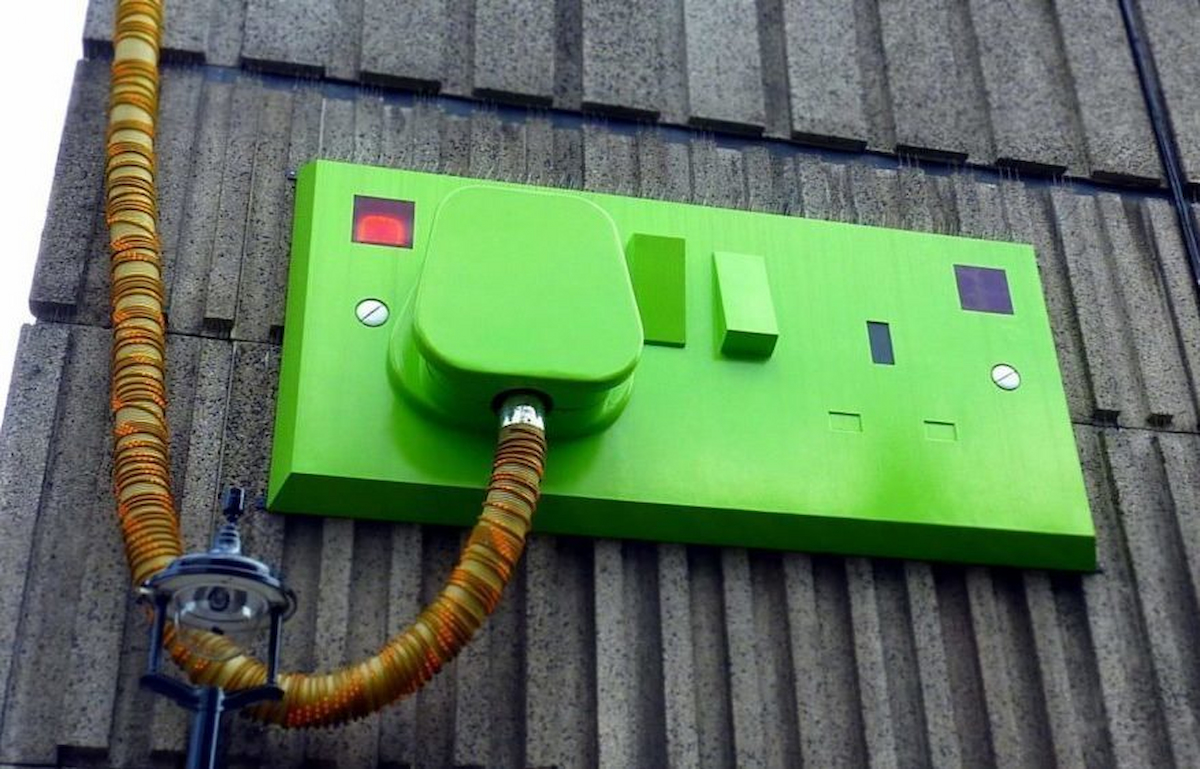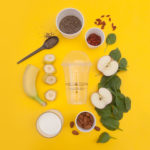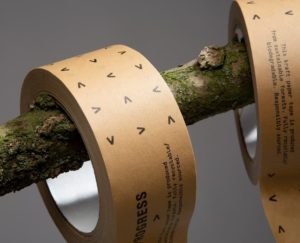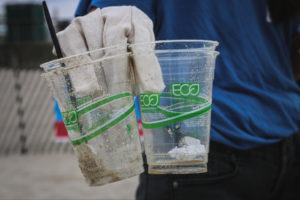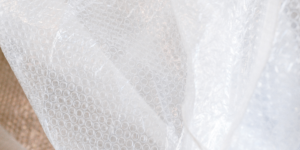With costs as low as £0.01per bag, it’s no surprise that single-use plastic bags have been the staple carrier bag option of retailers for many years.
Since 2015, the U.K has been combatting the amount of single-use carrier bags distributed by large retailers (250 full-time employees or more) in the form of a £0.05 charge per bag. Since the introduction of the £0.05 charge, a 95% reduction in plastic carrier bag distribution from supermarkets alone, is a fact that has been stated a lot.
Small retailers
But what about small retailers?
Up until now, it would seem that small retailers have slipped under the radar. From April 2021, however, this will change in the U.K. The current £0.05 charge will double and apply to the whole retail sector.
This is another step forward in combating single-use plastic carrier bags. Although, it begs the question, what options currently exist for small retail business owners that want to completely remove single-use plastic carrier bags from their shop?
We’ve put together a list showing that leaving single-use plastic carrier bags behind, without a heavy price tag is easier than ever for small retailers.
If your business isn’t a shop, but still uses carrier bags in some way, for example, an office, this article is also for you!
Note: the alternatives mentioned in this article are more sustainable in terms of reusability and time taken to decompose once discarded.
Each of the following types of bags does have a negative environmental impact during production and during decomposition.
Now, without further ado, let’s begin.
BYOB
Yes, you read that correctly, but sadly we’re talking about bags and not beer.
Incorporating a reduce, reuse and recycle mentality into your business, and encouraging customers to bring their own bags is the most effective way to reduce the usage of any kind of carrier-bag within your business.
Each time a customer comes to your shop armed with their own bag, that’s one less bag of yours used, one less bag added to their home collection, and not to mention one less bag that you now need to replace, in the long run saving you £££.
A simple sign in your shop window, notice on your website, or periodic email to your customer contact list is all it takes to encourage people to BYOB!
Paper Bags
Paper bags are a good option for small retailers whose customer’s average purchase isn’t a heavy one. Usually made from natural Kraft (German for strong) paper, this strong paper is produced using wood pulp and mainly consists of cellulose, a biodegradable organic compound.
Kraft paper comes in several forms, each with differing carbon footprints. Recycled Kraft paper ranks lower than virgin Kraft in terms of environmental impact, but also in terms of strength. Reading about the different types before buying will ensure that you chose the right Kraft paper bag for your business and environmental goals.
Despite being an excellent alternative to single-use plastic, it’s important to know the drawbacks of Kraft paper:
- Production creates on average four times the amount of CO2 than that of single-use plastic bags
- kraft paper bags weigh around five times more than single-use plastic bags. Thus, their environmental impact during transportation is greater
Although during production less environmentally friendly than plastic, kraft paper shines over the long-term. Its sturdiness allows for multiple uses and has an average in-earth decomposition time off. However, harmful chemicals may be a byproduct of decomposition
If your small business also operates online, kraft paper can also work as a great plastic-free packaging alternative for e-commerce.
You can buy Kraft paper bags from a U.K based wholesale retailer here.


Jute Bags
If the products you sell are on the heavier side, but still small enough to fit in a carrier bag, then jute bags could be the eco carrier bag solution for your business.
Another gift from mother-nature, jute is a naturally occurring fibre within its namesake plant. Sturdy yet biodegradable, you can relax knowing that the jute bags you provide your customers with will be used numerous times. Also, when replaced, they won’t linger in the environment for hundreds of years like their plastic counterparts.
Jute can only be grown in warm climates, so, like all cultivation of natural materials it does have a negative environmental impact in terms of global transportation.
Jute carrier bags are an ideal bag for wine sellers and retailers of other smaller products that come packaged in materials heavier than plastic. A breathable and moisture-wicking fabric, jute bags are also a stellar choice for carrying food produce.
Relatively low wholesale prices of £0.96 per bag can be found in the UK. Less economic than paper bags, jute bags can still save you money thanks to their durability – which means you buying less. A periodic reminder to customers to always bring their jute bag and you’ve got a long-term alternative to single-use plastic.
You can also buy jute bags from the following venders; Jutebag, Gojute and Supreme Creations.


Cotton and Canvas Bags
Cotton is a major player when it comes to eco-friendlier carrier bags. Another fibre which grows on a namesake plant, cotton is the most widely grown organic fibre and is also biodegradable.
Today the U.S remains one of the main producers of robust fibre. The U.S Department of Agriculture calculates the nation’s cotton carbon footprint at 4.43 kg CO2e/kg of fibre – about the same as driving 19.5 miles in a standard petrol engine car. These numbers may differ for other producing nations as environmental regulations may not be the same.
Drawstring cotton pouches are a great option for small, lighter products such as jewellery. They can be found for as little as £0.36 per pouch.
You can buy regular sized cotton carrier bags from £0.59 per bag here.
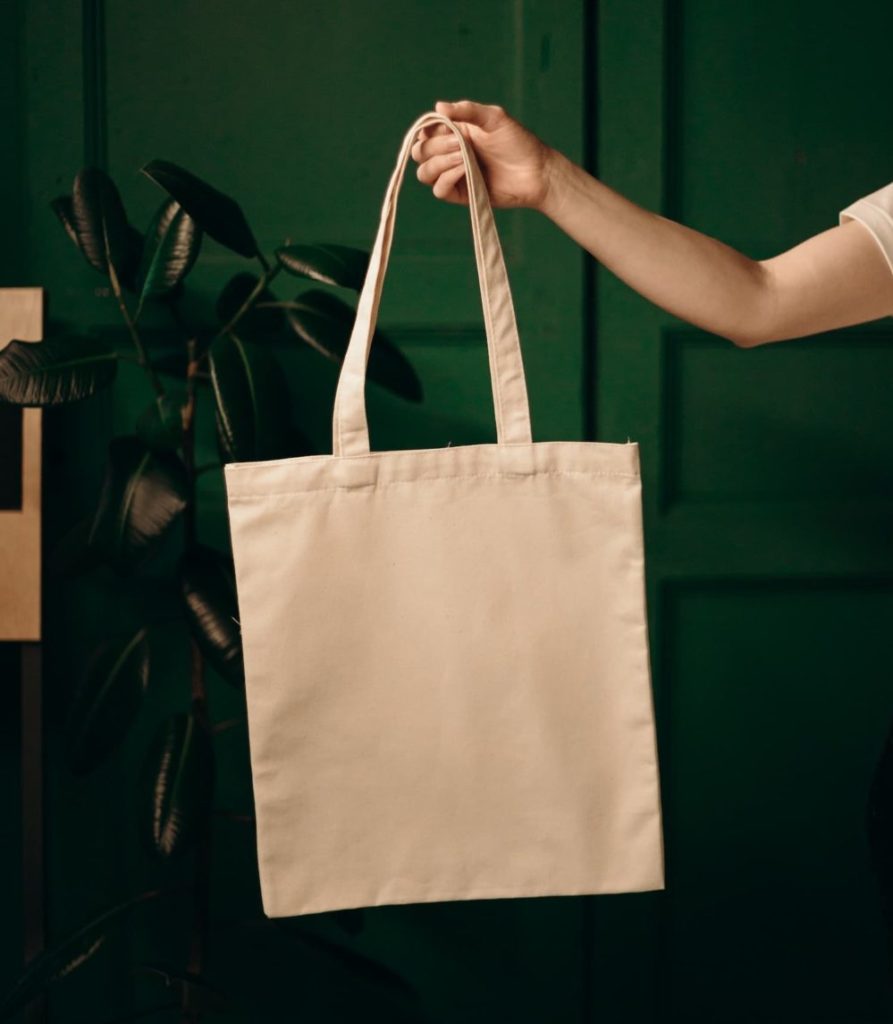

If your business needs regular-sized cotton carrier bags, but stronger, then consider canvas bags!
Canvas is the name given to cotton after it has been tightly weaved in a specific way to increase its strength.
This makes it a suitable reusable eco-friendlier carrier bag if your business sells products that are of medium weight. For example, glass-bottled products.
Canvas bags will cost a little more per unit than regular cotton ones. But the higher price brings:
- Greater durability/ increased length of life
- Excellent weight to strength ratio
You can purchase canvas carrier bags for your business here.
Finally, cotton, particularly canvas, can also be easily printed on to personalise them — although this will increase the environmental impact of the bag.
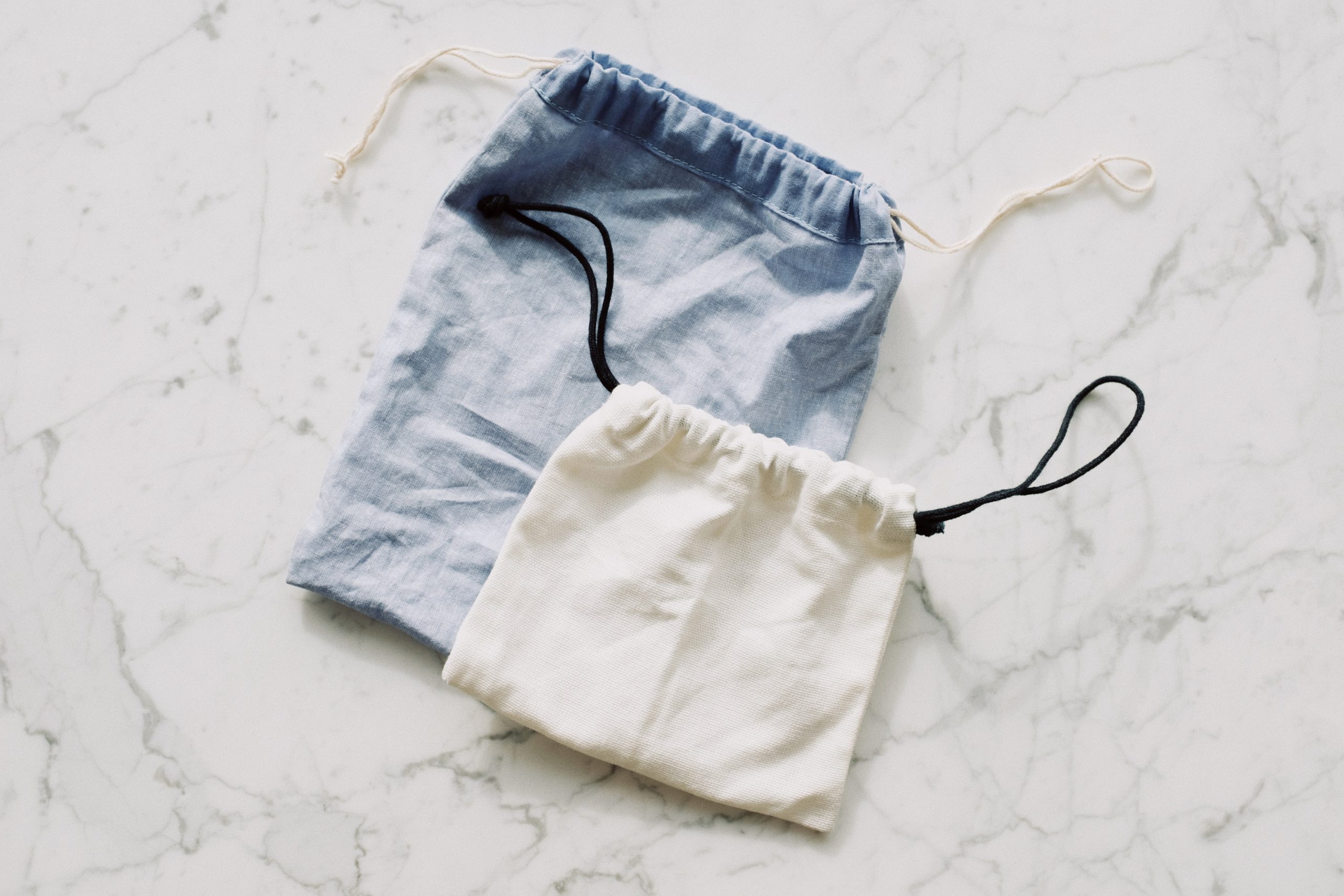

Biodegradable and Compostable Bags
A simple internet search will give you a plethora of options from where to buy biodegradable and compostable carrier bags. There is a stark difference between the two that needs highlighting.
Biodegradable VS Compostable
Biodegradable carrier bags decompose with the help of bacteria, but not all biodegradable bags are created equal.
Some ‘biodegradable’ plastic bags include additives to assist in the process of biodegradation. Although assisting, the additives in turn can increase the durability of the plastic particles into which the bags break down — creating the opposite of the desired effect. Depending on the type of additive, toxic residues may also seep into the surrounding environment.
Compostable bags don’t require the aid of any microorganism — they do it all by themselves and do not create toxic residues.
The bags need to meet global compostable packaging regulations. The catch is that these regulations are based on industrial composting and so don’t directly reflect home-composting conditions.
Potato starch bags: If your business needs an eco-friendly carrier bag for lightweight, smaller products, then potato starch could be the answer. You may already be familiar with starch-based bags as they’re now the standard food-waste bin liner in the UK. They also have the added benefit of being biodegradable.
Take note – potato starch bags must be composted to be effective. They aren’t soluble nor can they go to landfills with general waste. Not the most convenient environmentally friendly option, potato starch is still a far better option than plastic in terms of biodegradability.
At the wholesale level, potato starch bags will cost around £0.19 per unit. Not a shabby price for a carrier bag that won’t stick around for years on end.


Biodegradable plastic bags: Although we would recommend that you choose compostable carrier bags as your single-use plastic replacement, you can find several options for biodegradable plastic carrier bags here.
Bigger and strong bags for large heavy items
This article wouldn’t be complete without an option for heavy loads. If your business sells heavy-duty products, like building materials, you need something sturdy but lightweight.
Introducing woven polypropylene.
By encouraging customers to bring their own carrier bags for lighter purchases and selling only long-life woven polypropylene bags or sacks for the large, heavy purchases, you will be making a difference.
Although synthetic, woven polypropylene bags are a viable option for very heavy purchases and they can be re-used to carry almost anything.
Available for as little as £0.06 per unit, woven polypropylene , in terms of reusability is a strong solution for heavy-duty goods retailers.
You can also buy woven polypropylene sacks here.
Which is the Most Eco-friendly?
This is a difficult question to answer. Each of the materials mentioned has a different environmental impact than each other during production and decomposition.
The first table below summarises the average price per bag for every type of bag mentioned — single-use plastic carrier bags included. The second table summarises the CO2 e output during the production of the eco-friendlier materials. Unfortunately, we were unable to find reliable carbon emissions data for biodegradable plastic, potato starch plastic, woven polypropylene and high-density polyethylene.
| Type of bag | Price per single unit (£) |
|---|---|
| Kraft paper | 0.07 |
| Jute | 0.96 |
| Cotton pouch | 0.34 |
| Cotton bag | 0.59 |
| Canvas bag | 1.64 |
| Potato starch | 0.19 |
| Biodegradable plastic | 0.11 |
| Woven polypropylene | 0.06 |
| HDPE (single-use plastic) | 0.01 |
| Material | KG CO2e/tonne of material produced |
|---|---|
| Pulp paper | 950 |
| Jute (Indian grown) | 566 |
| Organic cotton (U.S grown) | 978 |
Conclusion
In summary; for light to medium weight purchases, starch-based, or Kraft paper bags are the current recommendable environmentally friendly alternatives. For medium to heavier loads go for cotton/canvas or jute bags, and for heavy-duty bagging, woven polypropylene. What’s important to keep in mind for the medium to heavy item carrier bags is that they’re only truly effective replacements for single-use plastic if they are reused over the long-term.
And there we have it — several options so that single-use plastic carrier bags never see the inside of your shop again — at least from your side of the counter!
Hopefully, as a retailer you’re now better clued-up to leave single-use plastic carrier bags behind.
Data sources for Kg Co2e/tonne fiber:




